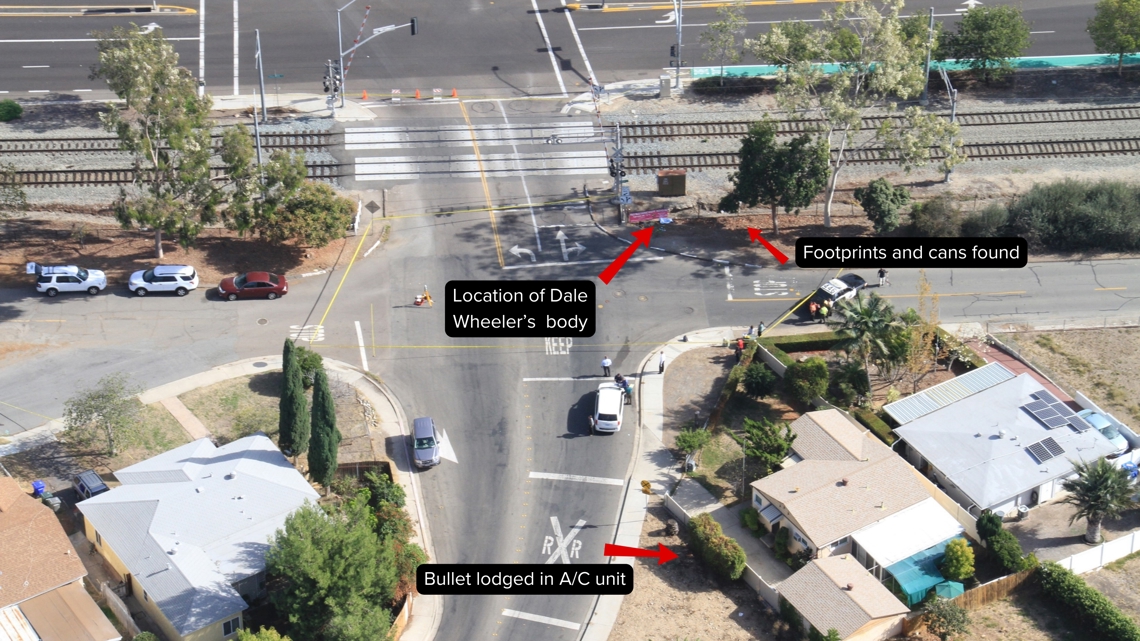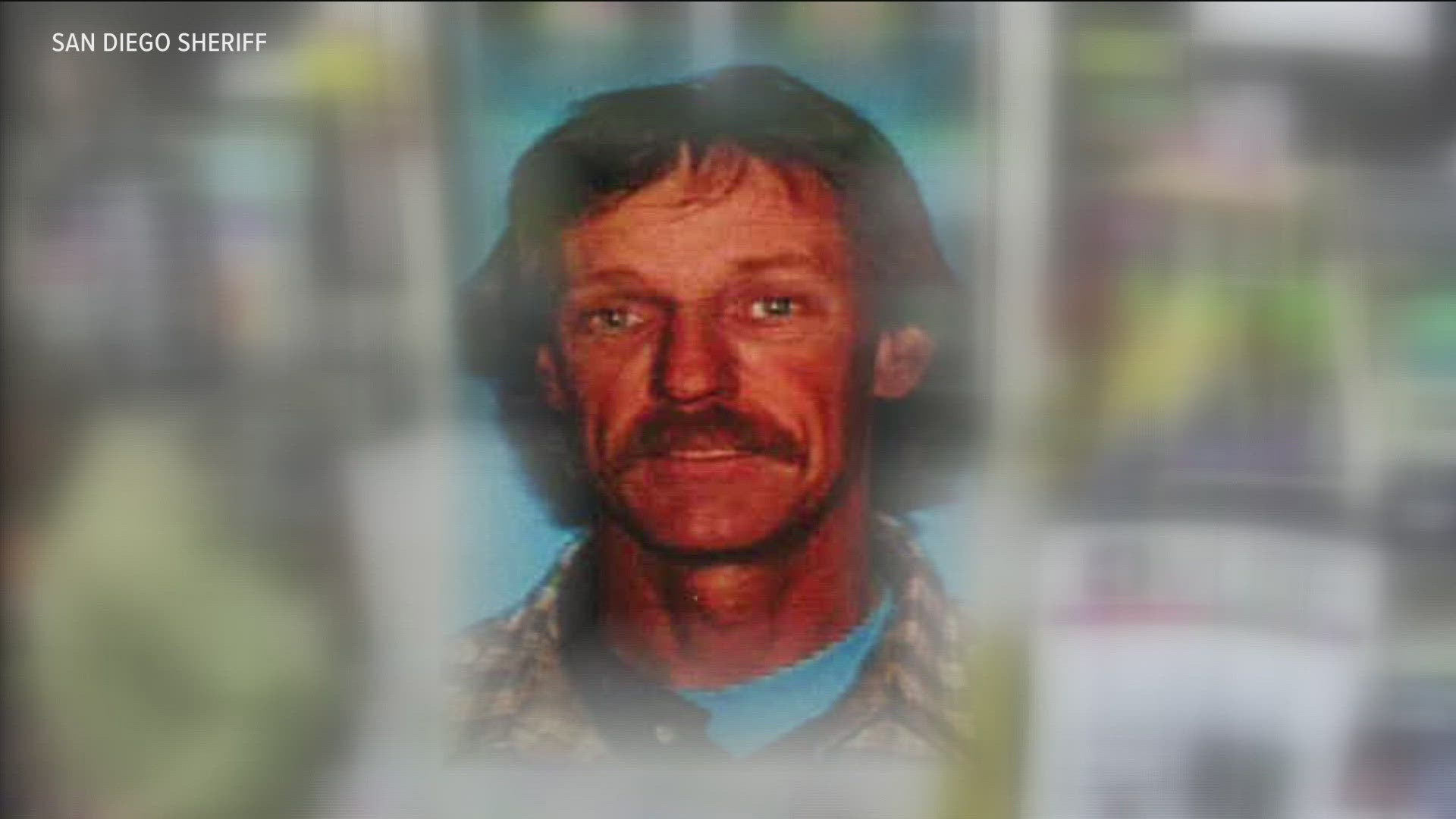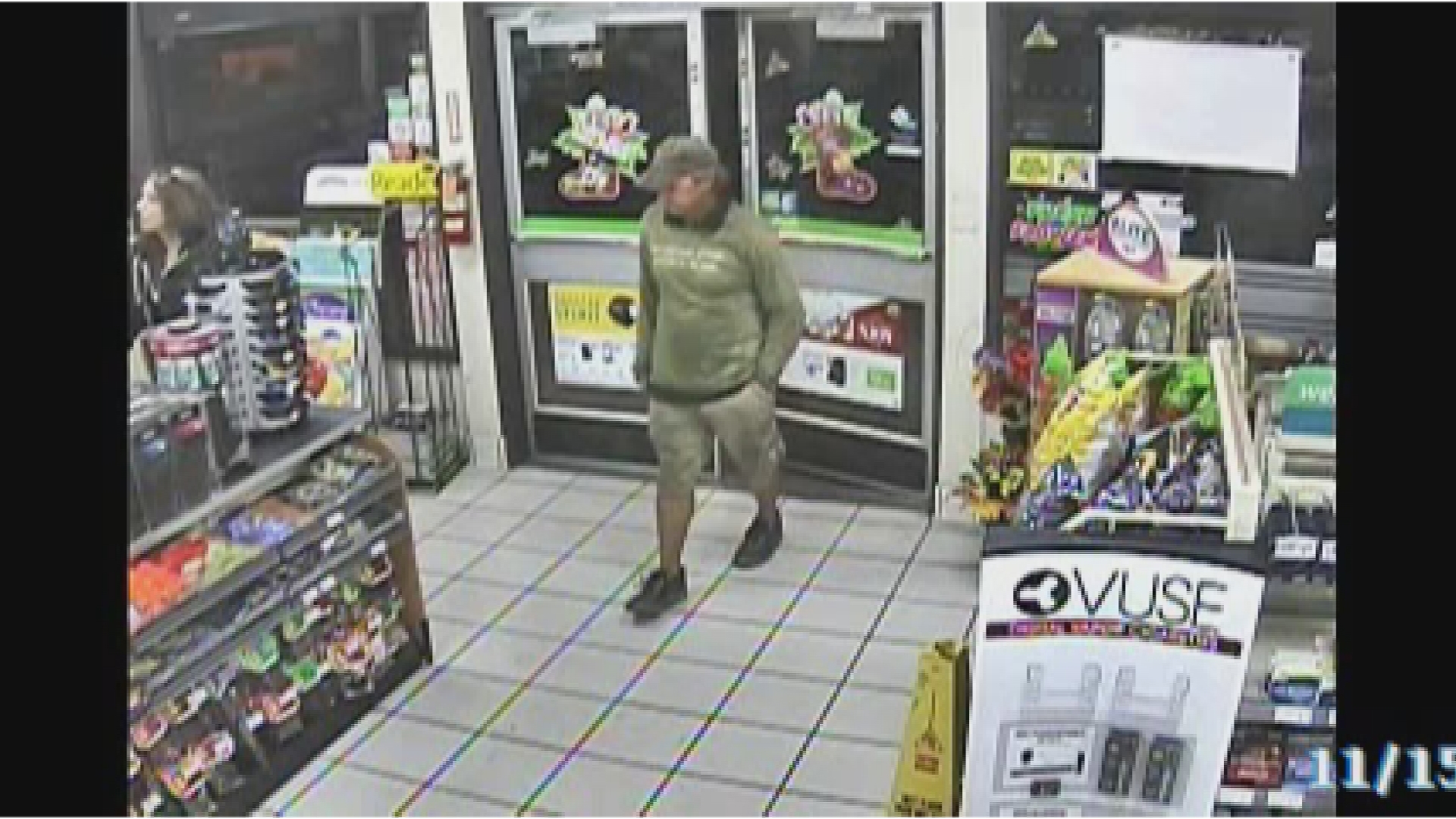SAN DIEGO COUNTY, Calif. — Dale Wheeler was last seen alive in the early morning hours of November 16, 2014, inside the AM/PM convenience store on Lemon Grove and San Miguel Avenues. Surveillance cameras show the lifelong Lemon Grove resident entering the store wearing dirt-stained beige cargo shorts, a brown sweater, and a hat.
The 55-year-old exited minutes later, holding a coffee mug up to the attendant as a goodbye.
Just a few hours later, at approximately 7:23 a.m. a pedestrian walking across the street from the AM/PM found Wheeler's body motionless, propped up against a chain link fence a few feet from the trolley tracks. A bag of aluminum cans, a task he did most days, was ripped open. The cans were strewn about the dirt area at the intersection of San Miguel and Lemon Grove Avenue.
When police arrived, they found Wheeler dead from multiple gunshot wounds.
The murder scene on November 16, 2014, lay in stark contrast to Wheeler's life. Sheriff's Detectives as well as neighbors described Wheeler as mild-mannered, soft-spoken, and non-confrontational. The murder scene, however, was littered with cans, footprints around his dead body, and bullets fired in all directions, one of which hit the air conditioner at a nearby house.


Wheeler was well-known in Lemon Grove. He grew up in the small city just east of San Diego. He spent most of his days and nights collecting aluminum cans along Lemon Grove Avenue. While mostly choosing to sleep on the streets, Wheeler spent a good amount of time at his family home off of San Miguel where Wheeler's brother lives.
Nearly ten years later, Wheeler's killer remains free and his murder has thus far confounded detectives.
Among the questions that have yet to be answered: Why would someone kill Wheeler?
Sergeant Tim Chantler heads up the San Diego County Sheriff's Cold Case Unit. Sergeant Chantler says Wheeler had no documented history of drug use or a history of violence. His toxicology report came back without any traces of drugs or alcohol, thus ruling out a drug deal gone wrong.
Sergeant Chantler also said Wheeler was unconfrontational and kept to himself, again ruling out that Wheeler had started an argument with someone or was agitated and caused a commotion.
"Mr. Wheeler didn't live a lifestyle that would indicate that [he was involved in] drugs or robbery or a fight," Sergeant Chantler said.
The lack of a clear motive, a history of drug use, or criminal activity makes Wheeler's murder an especially difficult case to crack. Making it even more difficult is that his death occurred with a firearm.
"We placed the rounds into our system to see if they match anywhere else in the county, the state and the U.S., and they haven't come back to any other weapon," said Sergeant Chantler.
Wheeler's death is one of numerous unsolved murders in San Diego County where victims were shot and killed.
The number of unsolved murders involving a shooting are linked to the number of firearm-related homicides that are increasing as well.
According to data obtained by CBS 8, homicides where guns were used rose by 56.3 percent from 2017 to 2022 in San Diego County.
Meanwhile, the number of arrests made in gun-related homicides, also known as the clearance rate, has dropped in recent years. This means more and more gun deaths will go unsolved and, like Wheeler and dozens of other murders, may soon turn cold.
But it's not just a San Diego problem.
Mattie Scott's son George was shot and killed at a house party in Northern California in July of 1996.
Since her son's death, Mattie Scott has devoted her time in search of her son's killer and has been a staunch advocate for anti-gun violence. Scott now serves as the President of Brady California and is the head of San Francisco's Mothers in Charge chapter.
Scott told CBS 8 that her journey since her son's death hasn't always been smooth, but knowing she is fighting for justice for her son and so many others helps her get through.
"There's never closure. We know that," Scott said. "However, my goal is, I want to get these killers, these guns, off the street. These are people that do not need to have a firearm. These are people that need to be rehabilitated. Until that happens, we will continue to fight and not give up."
"It's just devastating," added Scott. "It has such a devastating effect on families and what it does to them."
As for Dale Wheeler's family, CBS 8 contacted Wheeler's brother but he declined to talk.
Neighbors spoke highly of Dale Wheeler, calling him "nice" and describing him as a "caring, quiet man."
Meanwhile, despite the challenges, Sergeant Chantler and his cold case unit vow to continue their search for Wheeler's murderer.
"Every murder gets as much resources, as much effort as we can," said Chantler. "It doesn't matter your background, your lifestyle, whether you're rich or poor, we're going to give all the effort we can to every murder."
Added Chantler, "That's one reason we're reaching out to the public because this case has been worked on through the years. In the last couple of years, it's been reopened and worked very hard. We've developed some leads I can't get into but we still really don't know what led to that deadly confrontation."
WATCH RELATED: True Crime Files | The unsolved murder of 7-year-old Patty Kuzara


